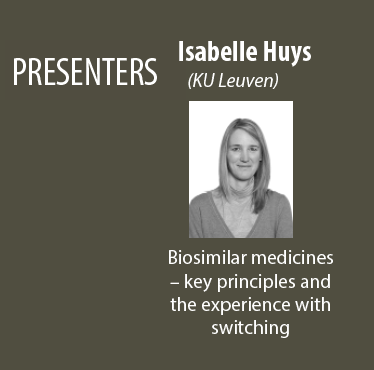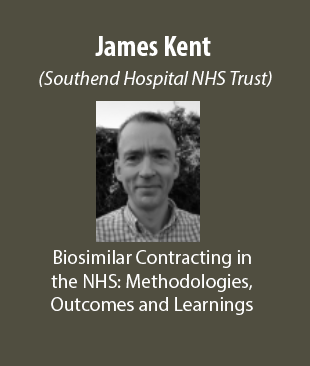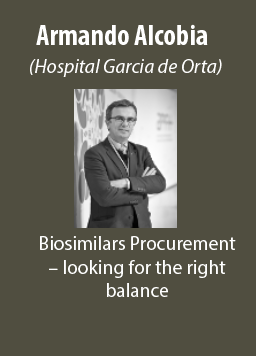Open Learning Course: Biosimilars – available yet sometimes missing – the challenge of procurement
![]()
Section 1 - Introductory Statements and Governance: Statements 1.6;
Section 2 - Selection, Procurement and Distribution: Statements 2.1; 2.3; 2.5
Click here to download the ACPE description form
![]()
For many years, biological drugs have not been subject to the competition of generics. In the last decade drug regulatory authorities in the European Union pioneered the concept of biosimilars. The European Medicines Agency approved, after thorough examination of applications, several biosimilar medicinal products, such as growth hormone, epoietin, granulocyte colony stimulating factors, monoclonal antibodies (infliximab, rituximab, tratuzumab) and a fusion protein (etanercept).
The regulatory setting is strong, and quality, safety and efficacy are assured by the same regulatory bodies that approve innovative medicinal product in Europe.
The use of all classes of biosimilars is widespread in Europe since safety or efficacy concerns did not materialise.
Biosimilars usually come to the market with lower prices than their reference products. This may balance the higher cost of new drugs, reducing constraints on healthcare systems and supporting their ability to provide access to new drugs for patients with serious diseases, such as cancer or autoimmune diseases.
Yet some clouds are still forming on the horizon in the form of procurement and tendering hurdles which at present still impair the full potential of biosimilars, a problem that will be tackled by this seminar. Major controversies concerning safety and efficacy exist around the topic of switching from a reference biological medicine to a biosimilar. This seminar will shed a light on currently available switching data.
Ground rules are the first issue to be considered, in particular to determine how tendering procedures can be designed to allow for market competition, while following specific rules that must always be applied to biosimilars.
A second concern to be addressed during this seminar is the issue of medicine shortages. Especially, because the problem has become more troublesome since the publication of EAHP's first survey results in 2014 with now 91.8% of hospital pharmacists indicating that medicines shortages are a current issue in the hospital they work in. The generic market, which is now fully developed, has shown the risk of shortages that may threaten patient care. This is also indicated in the results of EAHP's 2018 Medicines Shortages Survey which revealed that 77% of the participants reported generic medicines to be the most common type of medicine in short supply. Sometimes steep price cuts lead to single supplier / single manufacturer situations, which increase the risk of shortages and also may cause higher prices in the future, as competition disappears. Prudent tendering procedures should be developed in advance for the procurement biosimilars to avoid the risk of medicines shortages. The complexity of the regulatory process and biological drug manufacturing also needs to be considered since it inevitably minimises the number of players on the market, making the risk of shortages and rebound pricing quite real.
The hospital pharmacist is the key to sound drug procurement, being the responsible for the definition of the specifications in the tendering procedures while additionally ensuring the continuity of supply of cost-effective and quality medicines to patients.
The purpose of the seminar is to identify the problems, show examples, and discuss the way forward, so that the full potential of biosimilars as enablers of affordable innovation can be fulfilled, with maximum advantages for patients and healthcare providers. The influence and impact of biosimilars on the medicines shortage problem will be taken into account. In particular, since biosimilar medicines were only indicated as the type of medicine most commonly in short supply by 8% of the 2018 EAHP Medicines Shortages Survey participants.
Click HERE to access the course!
![]()
At the end of the open learning course, participants should be able to:
- utilise their newly acquired understanding of the specific issues related to procurement of biosimilars;
- recognise the risks of supply related to single supplier and single manufacturer situations;
- advise on the implementation of appropriate tendering processes for biosimilars.
biosimilars, procurement, shortages, switching.









